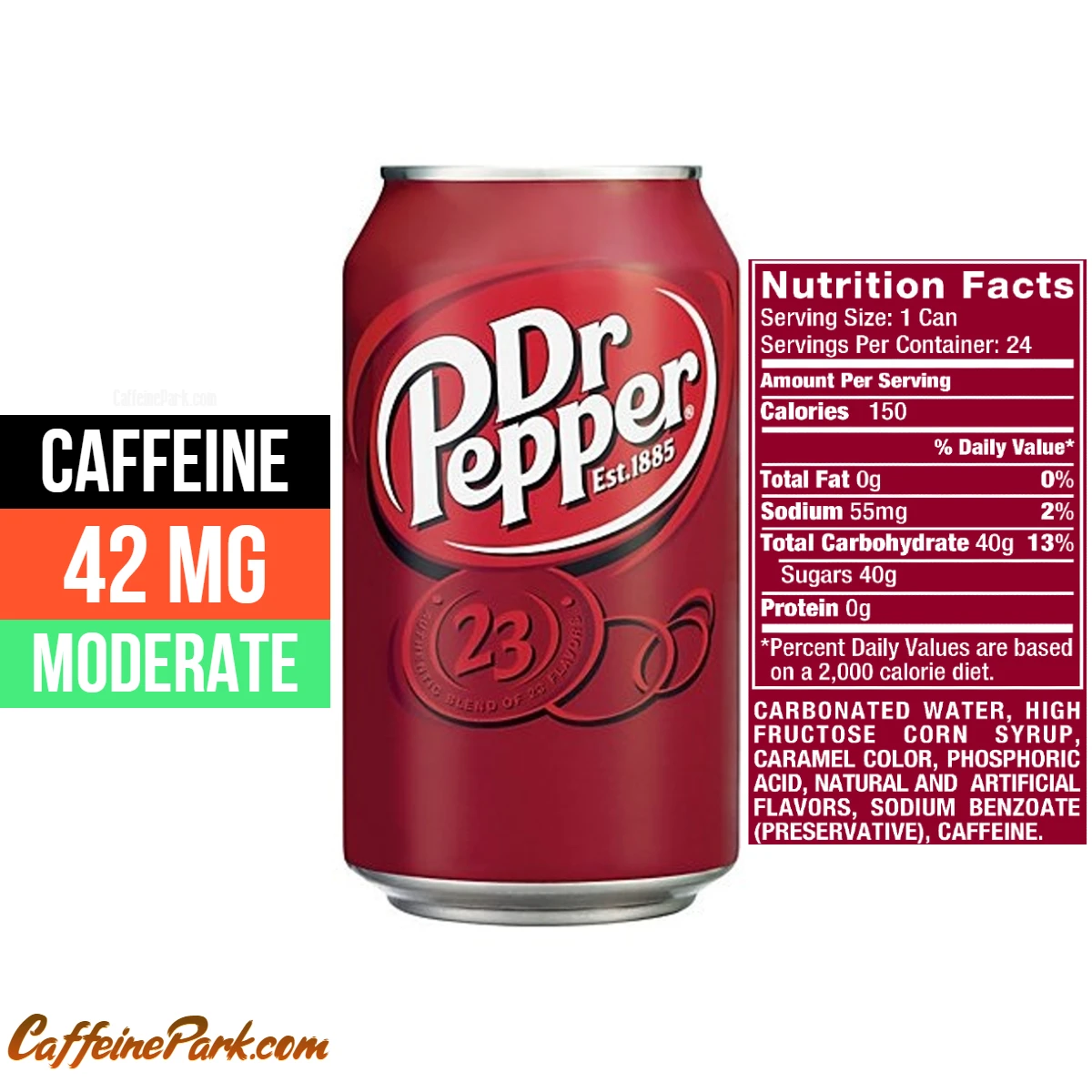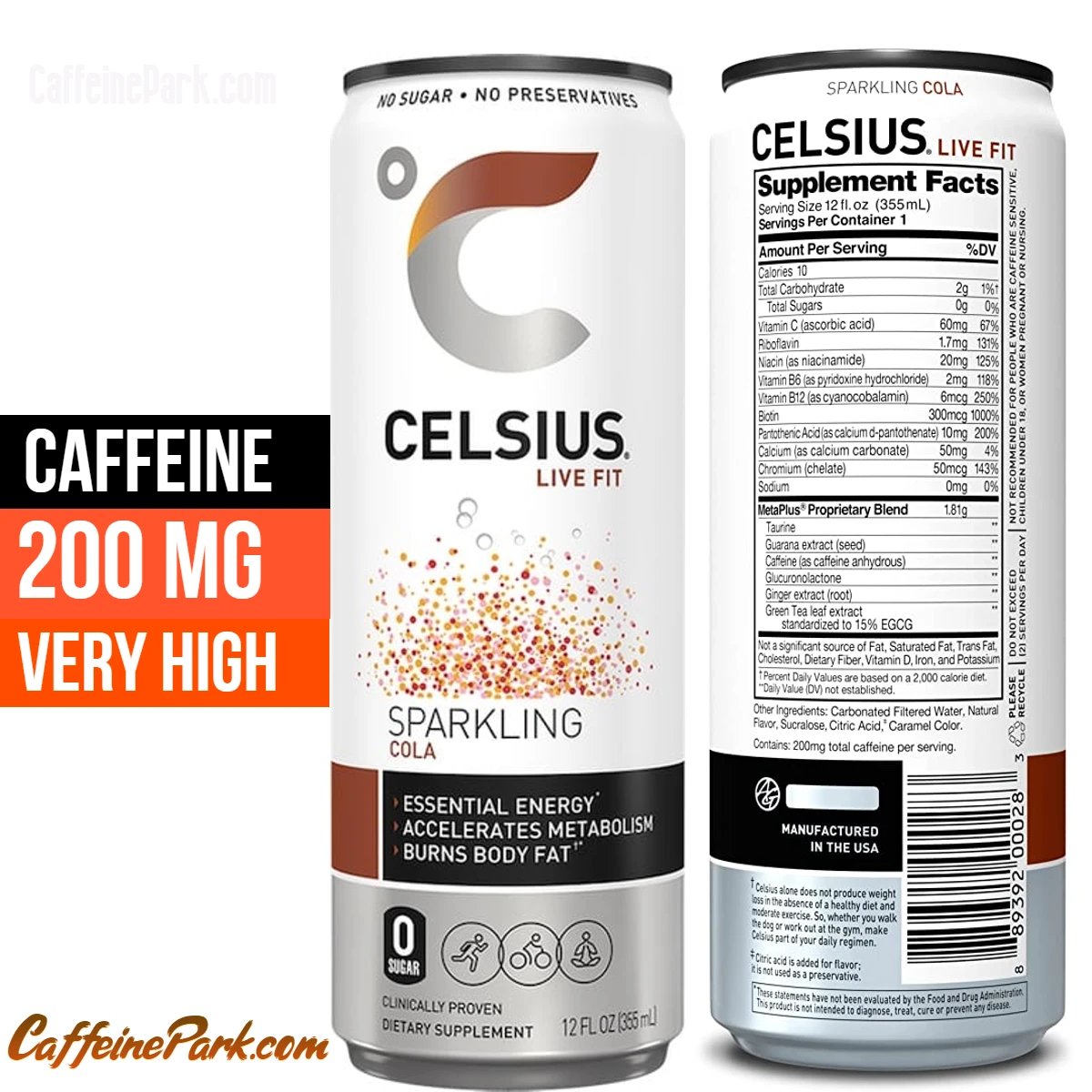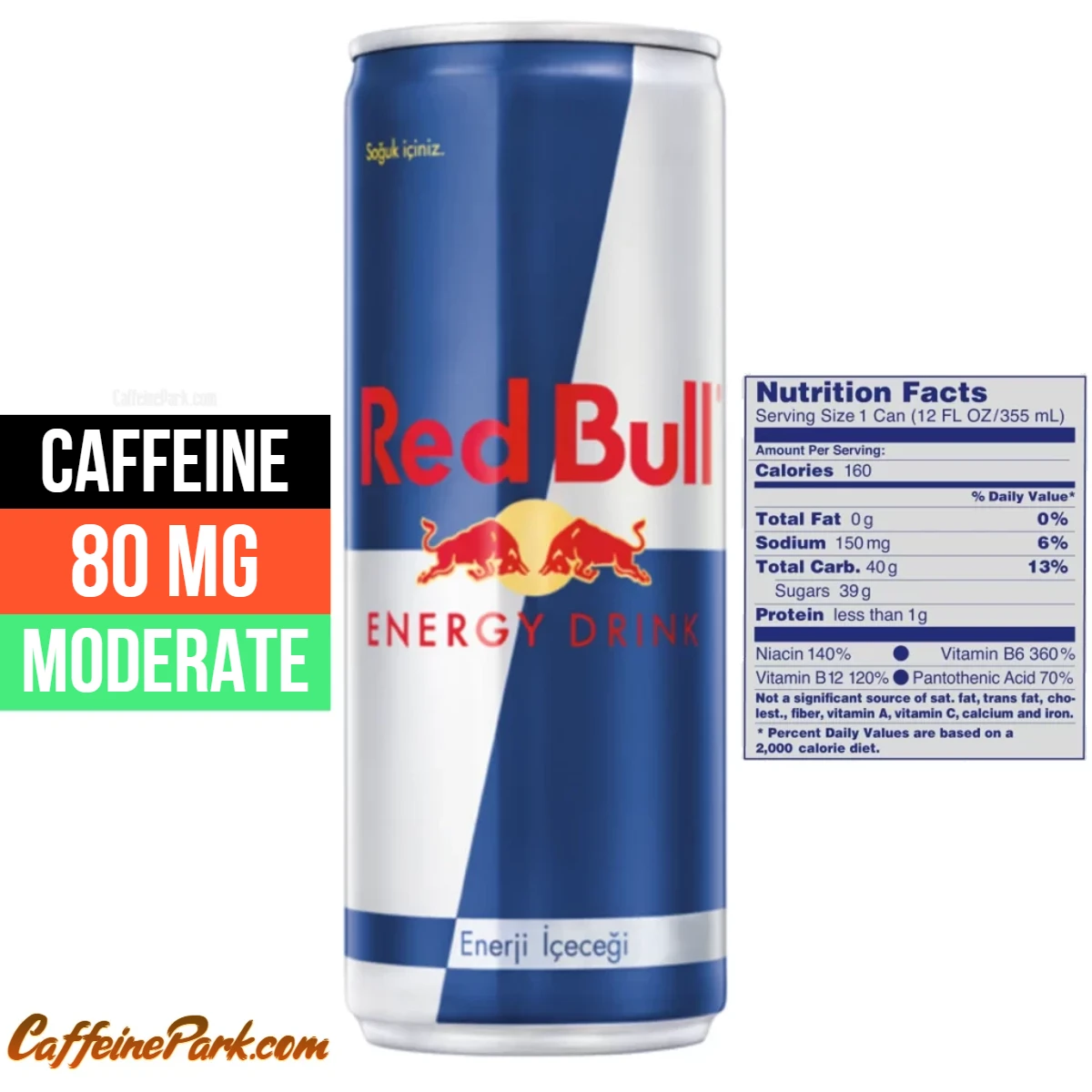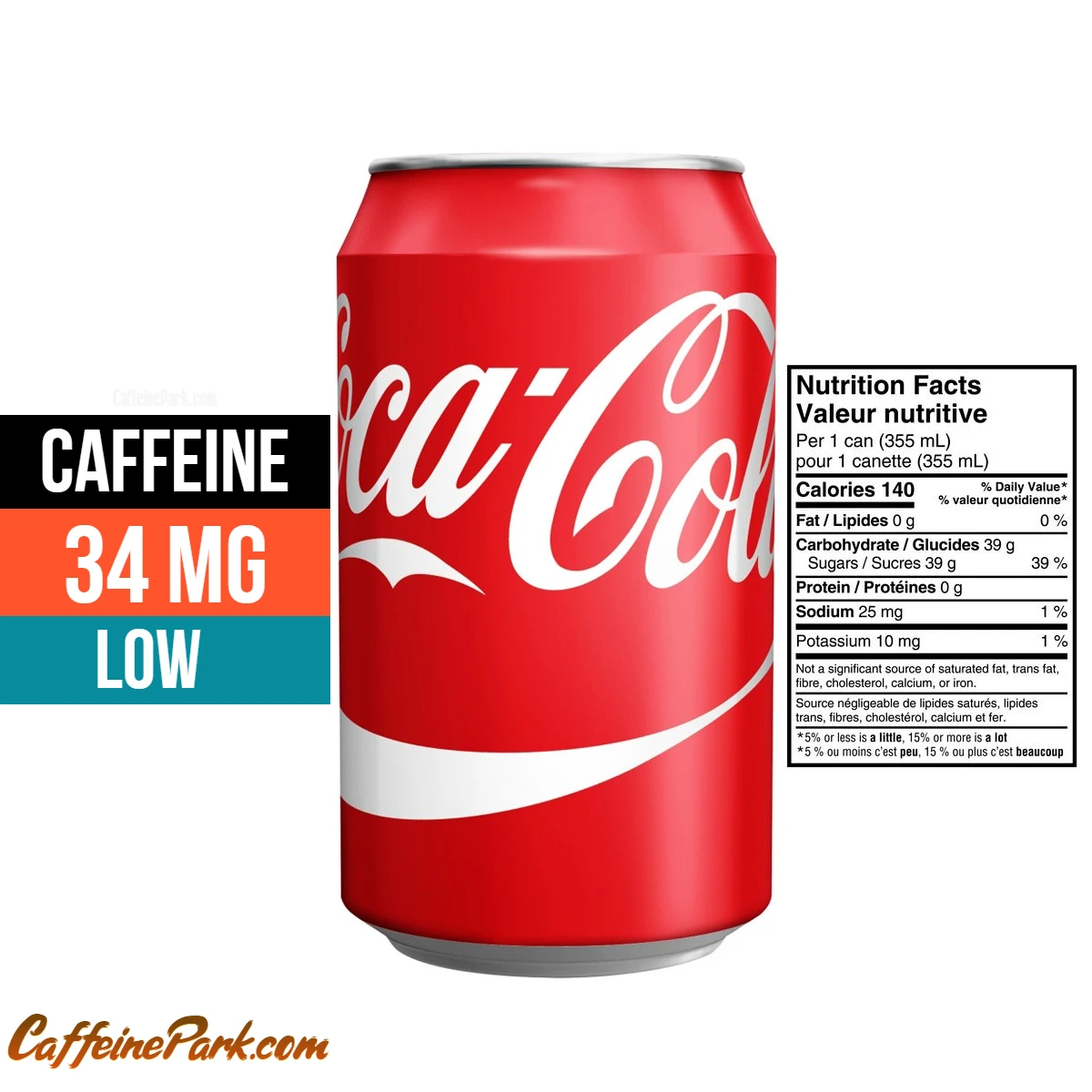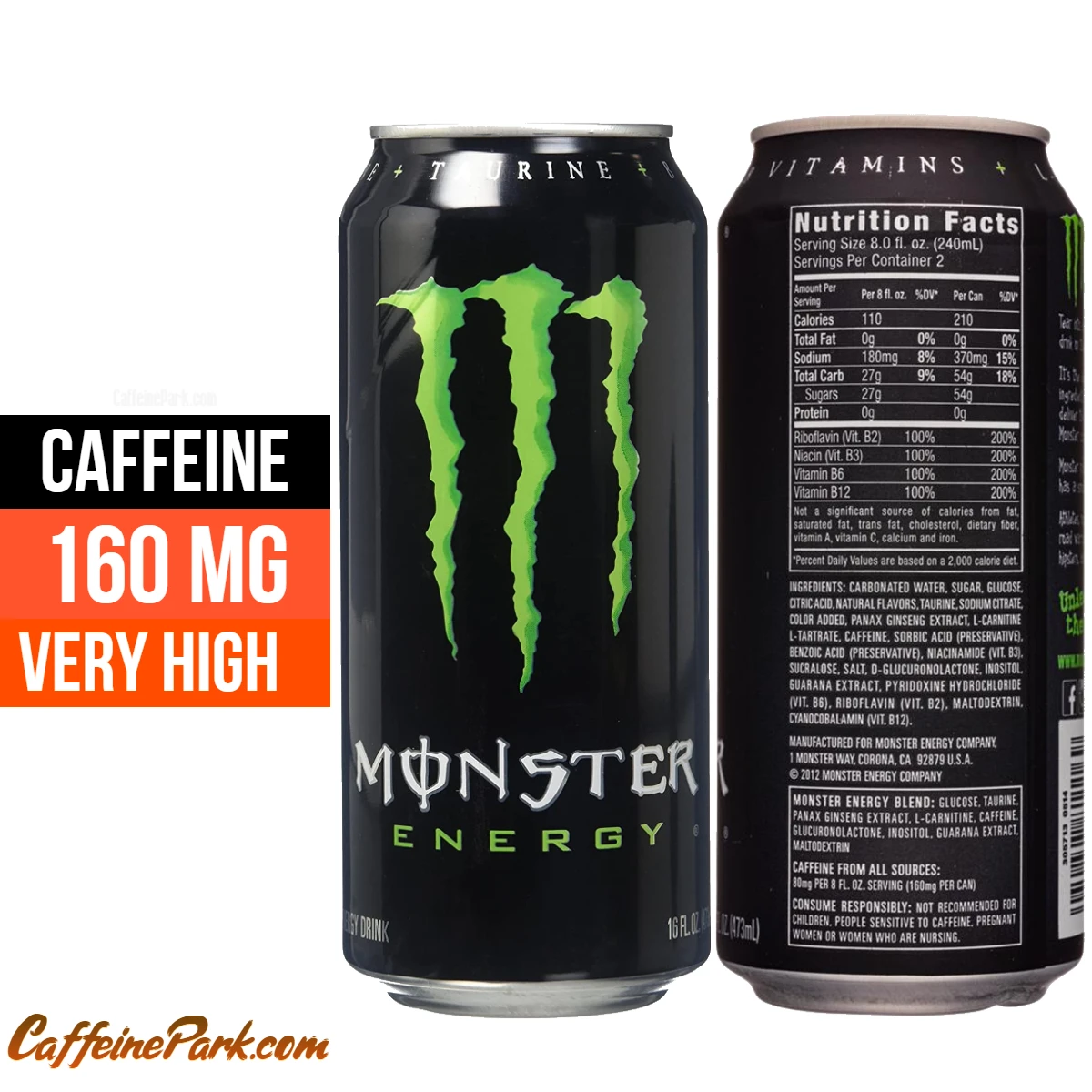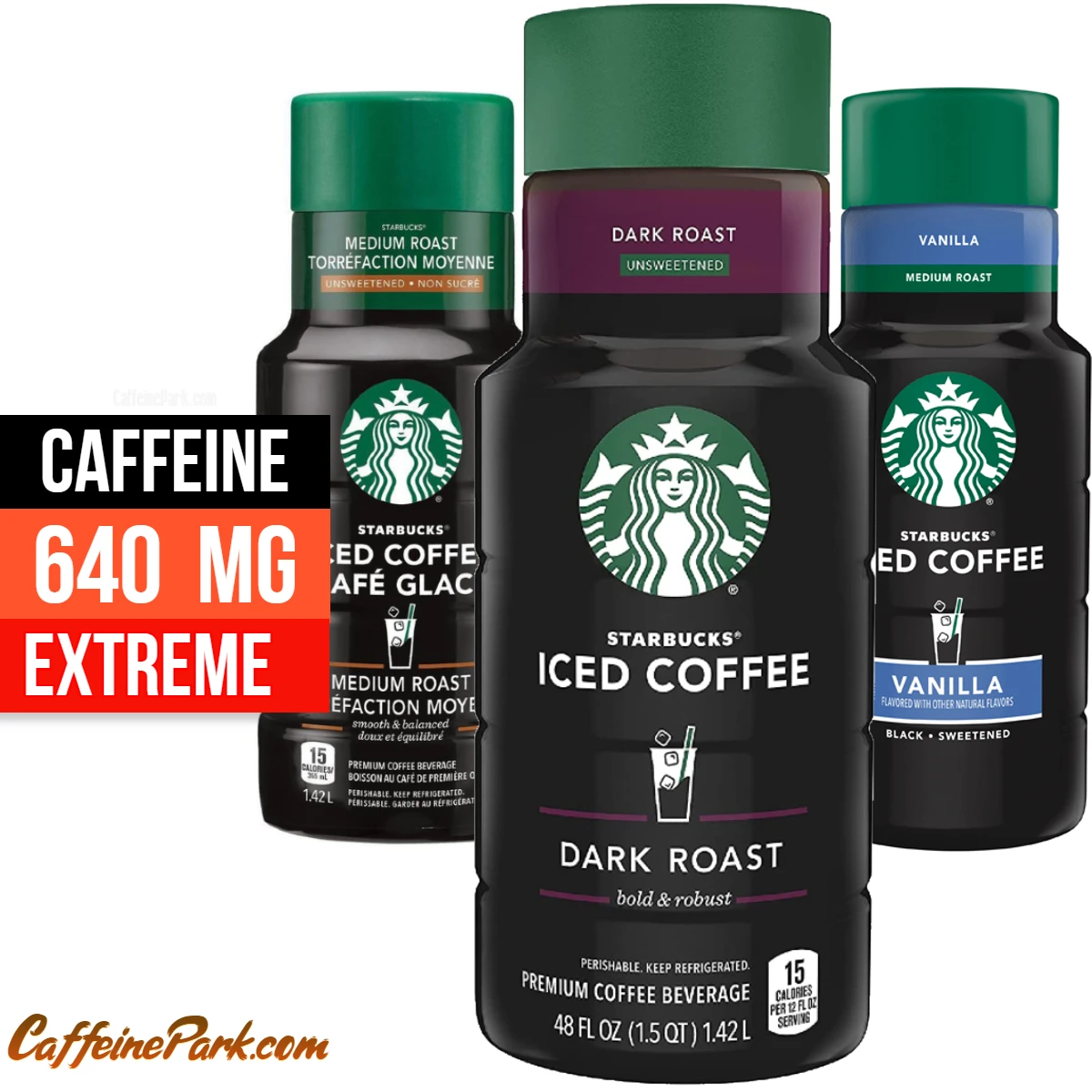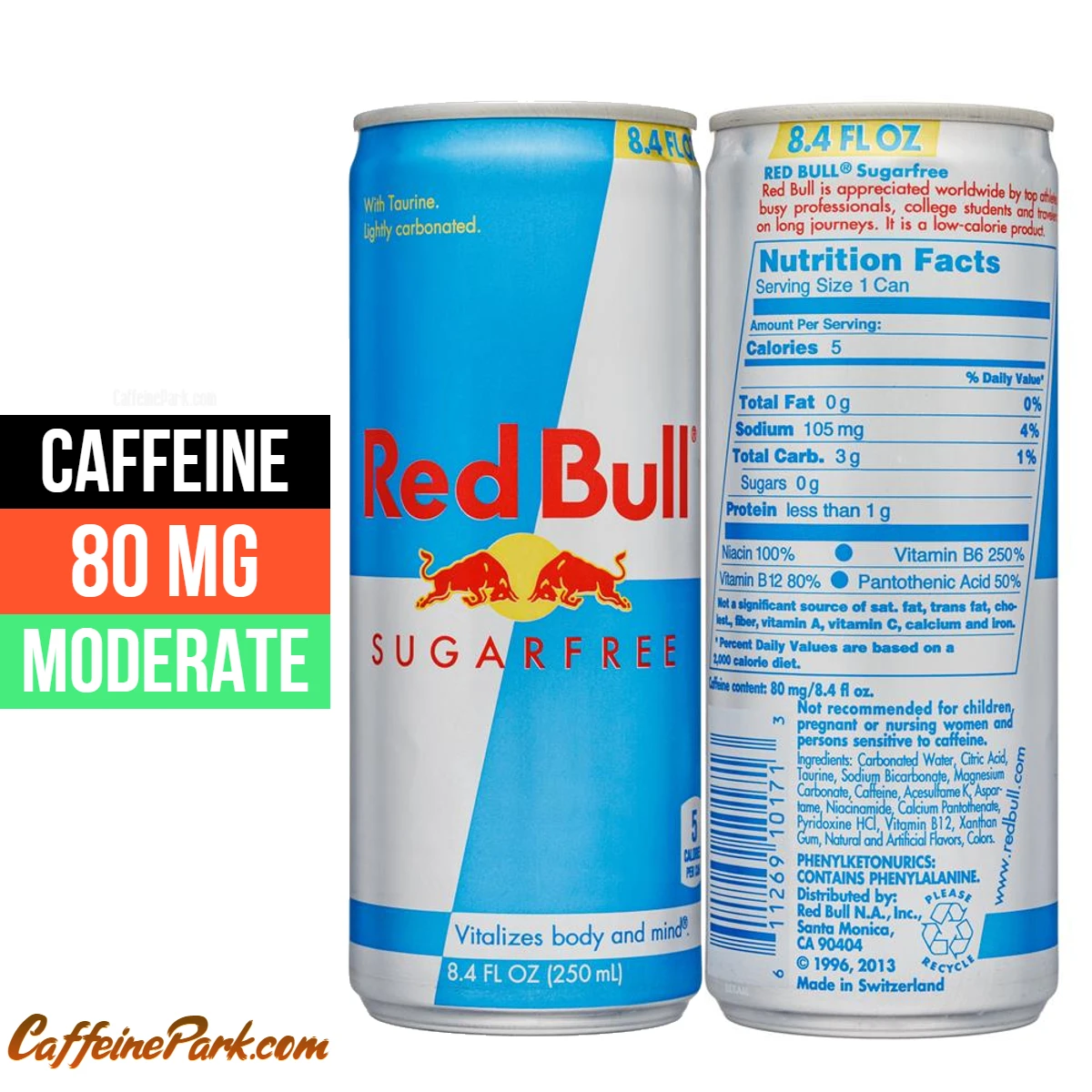
Red Bull Sugarfree is a popular energy drink that is marketed as a zero-sugar alternative to the original Red Bull Energy Drink. It is sweetened with artificial sweeteners like aspartame and ace-k and is available in a variety of sizes. The drink contains several ingredients, including carbonated water, taurine, caffeine, and various vitamins and minerals.
One of the key features of Red Bull Sugarfree is its caffeine content. Each 8.46 fl oz can contain 80 mg of caffeine, which is considered a moderate to high amount. This caffeine content can provide a quick and sustained energy boost, making it a popular choice among people who need a quick pick-me-up, such as athletes, students, and professionals.
However, it’s important to note that excessive caffeine consumption can have negative side effects, including jitters, anxiety, insomnia, and an increased heart rate. As such, it’s important to be mindful of your caffeine intake, especially if you have any health conditions or are sensitive to caffeine.
Does Red Bull Sugarfree have caffeine?
Yes, Red Bull SugarFree contains 80 mg of caffeine per 8.46 fl oz can or 9.46 mg of caffeine per fl oz ( 31.98 mg per 100 ml).
| Serving size | Caffeine Amount | Caffeine strength |
|---|---|---|
| 100ml | 32 mg | LOW |
| 8.46 fl oz can | 80 mg | MODERATE |
| 12 fl oz can | 113.5 mg | HIGH |
| 20 fl oz can | 189.1 mg | VERY HIGH |
- Red Bull Sugarfree Caffeine Amount: 80 mg
- Caffeine strength: MODERATE
- Calories: 10cal
- Serving size: 8.46 fl oz can
ingredients in Red Bull Sugarfree
ingredients in Red Bull Sugarfree’s special formula include taurine, some B-group vitamins, aspartame, and acesulfame K. Taurine is an amino acid that is found naturally in the body. It is known for its role in supporting cardiovascular health. The B-group vitamins are essential nutrients that are important for energy metabolism. Aspartame and acesulfame K are artificial sweeteners that provide sweetness without the calories of sugar.
- Carbonated Water
- Sodium Citrate
- Taurine
- Glucuronolactone
- caffeine
- Acesulfame K
- Aspartame
- Inositol
- Xanthan Gum, Niacinamide
- Calcium Pantothenate
- Pyridoxine Hcl
- Vitamin B12
- Artificial Flavors
- Colors
Compare caffeine in Red Bull Sugarfree vs other Red Bull
| Red bull Drinks | Serving Size | Caffeine |
|---|---|---|
| Red Bull Sugar-Free | 8.46 fl oz can | 80 mg |
| Red Bull Zero | 8.46 fl oz can | 80 mg |
| Red Bull Simply Cola | 8.46 fl oz can | 32 mg |
| Red Bull Original | 8.46 fl oz can | 80 mg |
| Red Bull Editions | 8.46 fl oz can | 80 mg |
| Red Bull Zero | 8.46 fl oz can | 80 mg |
Review
Are you looking for an energy boost without the added sugar? Look no further! Red Bull Sugar-Free is here to deliver that much-needed energy kick without any of the guilt. Packed with essential ingredients, this sugar-free version of the popular energy drink is designed to keep you energized and focused throughout the day. In this comprehensive review, we will delve into the history, taste, comparisons to other energy drinks, pros and cons, and much more. So, let’s dive right in and explore the world of Red Bull Sugar-Free!
The History of Red Bull Sugar-Free
Red Bull, the iconic energy drink brand, was first introduced in 1987 by Dietrich Mateschitz, an Austrian entrepreneur. Since then, it has gained a massive following worldwide, becoming synonymous with energy and vitality. Red Bull Sugar-Free was later introduced to cater to health-conscious individuals who wanted to enjoy the benefits of Red Bull without the sugar content.
The Taste of Red Bull Sugar-Free
One of the key concerns when it comes to sugar-free versions of popular drinks is the taste. However, Red Bull Sugar-Free manages to retain the familiar flavor profile of the original Red Bull while eliminating the sugar. It has a crisp and refreshing taste that combines elements of sweetness and tanginess, making it a delightful beverage to consume. The absence of sugar does not compromise the overall experience, and you can enjoy the energizing effects without any lingering aftertaste.
Comparing Red Bull Sugar-Free to Other Energy Drinks
When it comes to energy drinks, the market is flooded with various options. So how does Red Bull Sugar-Free stack up against the competition? Let’s take a closer look at how it compares to other popular energy drinks.
Red Bull Sugar-Free vs. Regular Red Bull
One of the most obvious comparisons to make is between Red Bull Sugar-Free and regular Red Bull. The primary difference lies in the sugar content. While regular Red Bull contains a significant amount of sugar, Red Bull Sugar-Free eliminates the sugar entirely. This makes it a preferable choice for individuals who are watching their sugar intake or are simply looking for a healthier alternative. Both versions provide the same energizing ingredients, such as caffeine and taurine, so you can expect similar performance in terms of boosting focus and alertness.
Red Bull Sugar-Free vs. Monster Energy Zero Ultra
Monster Energy Zero Ultra is another popular sugar-free energy drink that competes with Red Bull Sugar-Free. In terms of taste, both beverages offer unique flavor profiles. Red Bull Sugar-Free has a slightly more subtle and crisp taste, while Monster Energy Zero Ultra has a bolder and sweeter flavor. When it comes to ingredients, both drinks contain caffeine and taurine, but Monster Energy Zero Ultra also includes additional ingredients like B vitamins and herbal extracts. Ultimately, the choice between the two will depend on personal preference and desired effects.
Red Bull Sugar-Free vs. Rockstar Sugar-Free
Rockstar Sugar-Free is yet another contender in the sugar-free energy drink category. Similar to Red Bull Sugar-Free, it provides an energy boost without the added sugar. In terms of taste, Rockstar Sugar-Free has a more intense and slightly sweeter flavor compared to Red Bull Sugar-Free. However, the overall difference in taste is subjective and may vary from person to person. When it comes to ingredients, both drinks contain caffeine and taurine, along with their respective proprietary energy blends. The choice between Red Bull Sugar-Free and Rockstar Sugar-Free ultimately boils down to personal preference.
Pros and Cons of Red Bull Sugar-Free
No review would be complete without a balanced discussion of the pros and cons of Red Bull Sugar-Free. Let’s take a closer look at what makes this energy drink a popular choice for some and the potential drawbacks you should be aware of.
Pros of Red Bull Sugar-Free
- Sugar-Free: The most significant advantage of Red Bull Sugar-Free is, of course, the absence of sugar. This makes it a suitable option for those who want to limit their sugar intake or manage their weight while still enjoying an energy boost.
- Energizing Ingredients: Red Bull Sugar-Free contains essential ingredients like caffeine and taurine, which are known to enhance alertness, focus, and physical performance. These ingredients can provide you with the energy you need to power through your day or tackle a challenging workout.
- Familiar Taste: Red Bull Sugar-Free manages to deliver a taste that closely resembles the original Red Bull. It retains the crisp and refreshing flavor profile that many Red Bull enthusiasts love, making it a satisfying choice for those who enjoy the taste of the classic energy drink.
- Convenience: Red Bull Sugar-Free is readily available in various sizes and can be found in convenience stores, supermarkets, and even online. This makes it easily accessible whenever you need a quick energy boost on the go.
- Brand Reputation: Red Bull has established itself as a leading brand in the energy drink market, known for its high-quality and innovative products. Choosing Red Bull Sugar-Free means you’re opting for a brand with a proven track record of delivering reliable energy drinks.
Cons of Red Bull Sugar-Free
- Artificial Sweeteners: While Red Bull Sugar-Free eliminates sugar, it substitutes artificial sweeteners like aspartame and acesulfame potassium to provide sweetness. Some individuals may have concerns about the potential health effects of consuming artificial sweeteners, although the research on their long-term impact is still inconclusive.
- Caffeine Content: Red Bull Sugar-Free, like other energy drinks, contains caffeine. While moderate caffeine consumption can have positive effects, excessive intake or sensitivity to caffeine may lead to side effects such as jitters, increased heart rate, or difficulty sleeping. It’s essential to be mindful of your overall caffeine consumption from various sources.
- Individual Tolerance: Energy drinks affect individuals differently. Some people may experience a significant energy boost and heightened focus, while others may not notice a substantial difference. Your personal tolerance and sensitivity to the ingredients in Red Bull Sugar-Free may vary, so it’s essential to listen to your body and consume it in moderation.
- Price: Compared to other beverages, energy drinks, including Red Bull Sugar-Free, can be relatively more expensive. If you’re on a tight budget or prefer more affordable alternatives, this may be a drawback to consider.
The Verdict on Red Bull Sugar-Free
Red Bull Sugar-Free offers a sugar-free alternative to the classic energy drink, providing an energizing boost without the guilt of added sugars. With its familiar taste, essential ingredients, and convenience, it has become a popular choice among individuals seeking an energy drink that aligns with their health-conscious lifestyle.
However, it’s important to consider the potential drawbacks, such as the use of artificial sweeteners and individual tolerance to caffeine. Like any beverage, moderation is key, and it’s crucial to be mindful of your overall dietary choices and preferences.
Ultimately, the decision to consume Red Bull Sugar-Free or any energy drink rests on personal preference, dietary needs, and individual health considerations. If you’re looking for a sugar-free energy drink that delivers on taste and performance, Red Bull Sugar-Free is worth trying. Remember to make informed choices, stay hydrated, and listen to your body’s needs as you enjoy the energizing benefits of Red Bull Sugar-Free.
FAQs
Red Bull Sugarfree contains 80mg of caffeine per 8.46 fl oz can.
Red Bull Sugarfree contains approximately 9.46mg of caffeine per fluid ounce.
Red Bull Sugarfree has a caffeine content of 31.98mg per 100 milliliters.
Absolutely! Red Bull Sugarfree provides the same energy boost as regular Red Bull but without the added sugar. It’s a great choice for those looking for a sugar-free energy drink.
Red Bull Sugarfree contains caffeine, which can provide temporary alertness and reduce fatigue. It may help improve focus and productivity, but individual responses to caffeine can vary.
While moderate caffeine consumption is generally safe for most individuals, excessive intake may lead to side effects such as jitteriness, increased heart rate, and difficulty sleeping. It’s important to consume Red Bull Sugar-free in moderation and be mindful of your own caffeine tolerance.
Red Bull Sugarfree can be consumed by athletes as a source of quick energy. However, it’s essential to consider individual dietary needs and consult with a healthcare professional if needed.
Red Bull Sugarfree can be enjoyed straight from the can, chilled, or over ice. It’s best to consume it when you need a boost of energy or increased alertness. Remember to drink responsibly and be aware of your caffeine intake throughout the day.
Yes, Red Bull Sugarfree contains 80 mg of caffeine per 8.46 fl oz can, which is considered a moderate to high amount.
Carbonated Water, Sodium Citrate, Taurine, Glucuronolactone, Caffeine, Acesulfame K, Aspartame, Inositol, Xanthan Gum, Niacinamide, Calcium Pantothenate, Pyridoxine Hcl, Vitamin B12, Artificial Flavors, Colors.
No, people with health conditions or who are sensitive to caffeine should avoid or limit their consumption of Red Bull Sugar-free. Excessive caffeine consumption can have negative side effects, such as jitters, anxiety, insomnia, and an increased heart rate.
It is not recommended for children to drink Red Bull Sugarfree due to its high caffeine content. Children are more susceptible to the negative effects of caffeine and should avoid or limit their consumption.
While Red Bull Sugarfree is marketed as a zero-sugar alternative, it still contains artificial sweeteners like aspartame and ace-k. Some studies have linked these artificial sweeteners to potential health risks, such as weight gain and an increased risk of certain diseases. It is important to be mindful of your overall sugar and artificial sweetener intake.
Is Red Bull sugar-Free healthy?
While sugar-free Red Bull is lower in sugar and calories, it packs the same amount of caffeine as regular Red Bull. Plus, as it contains artificial sweeteners, it may not be as healthy as you think. If you’re looking for a lower-sugar alternative to regular Red Bull, sugar-free Red Bull may be a good option. Additionally, as it contains artificial sweeteners, it may not be as healthy as you might expect.
Read More:
